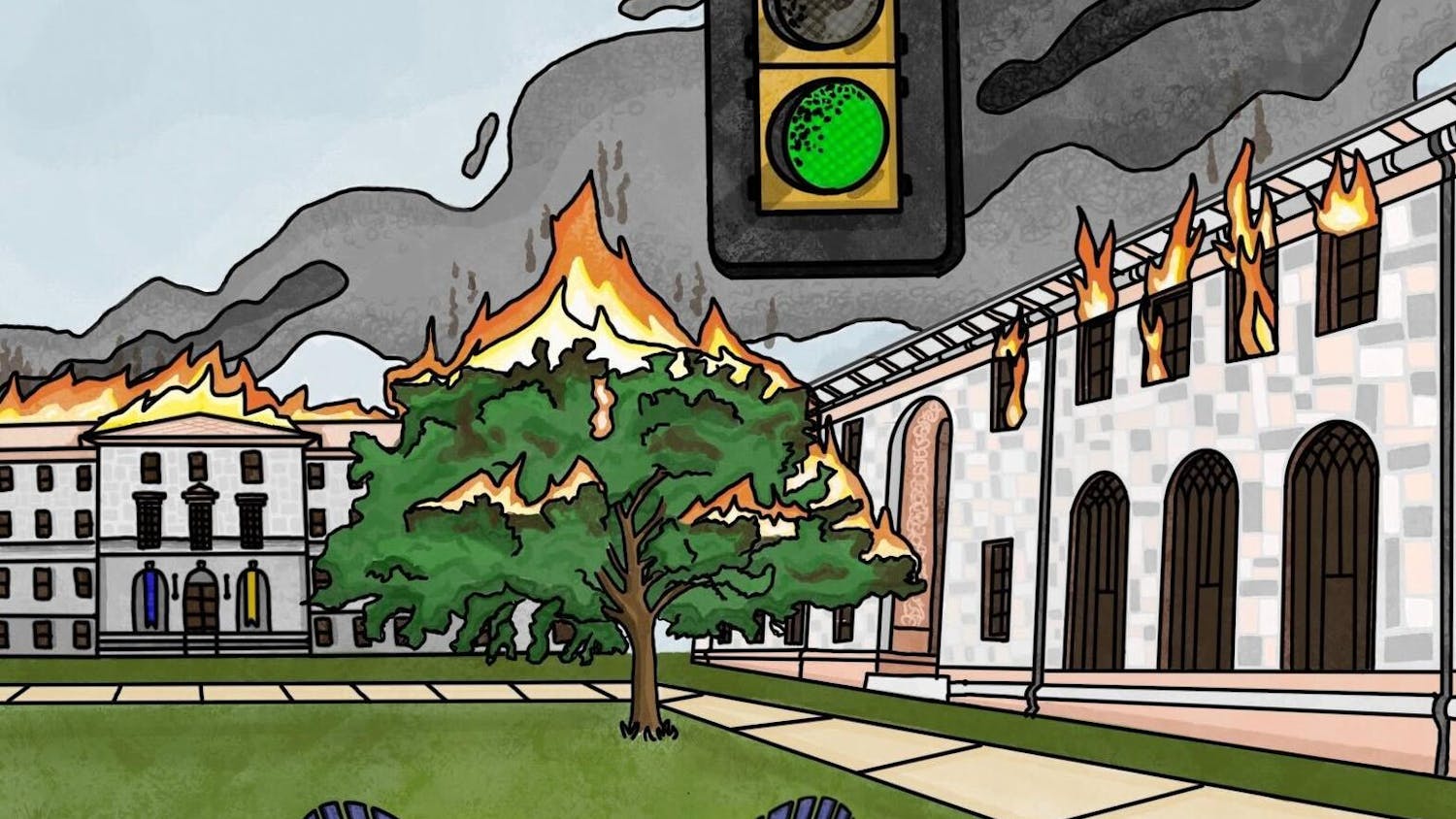On Sept. 4, President Donald Trump banned all federal agencies from conducting diversity training, deeming it “anti-American propaganda.” His rationale is ludicrous.
In a statement, the White House cast white federal employees as victims of diversity initiatives, which have been telling them that “virtually all White people contribute to racism” or that they “benefit from racism.” The bans demand termination of all training that covers “critical race theory,” references “white privilege” or suggests that the U.S. is inherently racist, among other criteria. Trump’s move is an act of erasure.
Anti-racism is not the default; for white people and non-Black POC unlearning our biases and recognizing our privilege requires active work. While it’s an uncomfortable truth to reckon with, America was built on racism. White people benefit from institutionalized racism. White privilege is real.
Yet Trump regularly denies the existence of systemic racism. As protests rage in Kenosha, Wisconsin following Jacob Blake’s shooting, Trump visited the city only to blame police brutality on a few “bad apples” and absolve the corrupt justice system of any responsibility. Perhaps the reason he is so keen on repudiating racism is due to his own role in perpetuating it. Trump’s racism is no secret; he has reserved full-page ads calling for the death penalty of a group of Black teenagers wrongly accused of murder, employed birtherism to denounce former President Barack Obama and Sen. Kamala Harris (D-Calif.), and told four congresswomen of color to “go back and help fix the totally broken and crime infested places from which they came.” Trump’s recent denial of institutionalized racism in Kenosha is only the latest in a long-standing trend of vile rhetoric.
Trump minimized diversity training as nothing more than anti-American propaganda. This is reprehensible. The U.S. only exists today because of immigrants and the contributions made by people of color. Rather than acknowledging the U.S.’s horrific past and aiming to cleanse our institutions of systemic racism, Trump’s goal is to dismiss its very existence.
For Black, Indigenous and people of color (BIPOC), systemic racism pervades all aspects of our lives: health care, education, housing, criminal justice and much more. We see it when a brown kid brings a digital clock he built to school and gets arrested because his teachers assume it was a bomb; when a Black man goes for a run only to be shot by neighborhood residents who believe he was a criminal; when marginalized communities are continually left behind, overlooked, beaten, bruised and left for dead.
These are not isolated incidents. For BIPOC, this is the reality that plagues us.
In the midst of the #BlackLivesMatter movement, police brutality reveals the painful reality of systemic racism. As of this year, Black people make up 28% of those killed by police despite comprising only 13% of the population. About 17% of Black people who died from police violence were unarmed, an amount larger than any other racial group. Police officers are taught to profile Black individuals on nothing more than their race despite clear evidence showing they are no more likely to commit crimes than any other group. Breonna Taylor, Rayshard Brooks, George Floyd and many more have suffered at the hands of a corrupt police system. Unarmed Black people regularly die for no reason other than unwarranted bias and suspicion. Rather than seeking solutions to these horrific problems, Trump’s recent diversity bans show once more that he only wishes to ignore them. Our police system, as with all of our institutions, is consumed by racism.
Black women die in childbirth at a rate 2.5 times higher than do white women. Most pregnancy-related deaths are preventable — clearly there is racism embedded in our healthcare system. Black and Latinx applicants are charged higher interest rates on home loans than their white counterparts, which exemplifies decades-long housing discrimination. Black transgender people face widespread discrimination in workforces and schools nationwide, with 34% living in extreme poverty. Racism’s perversion of all facets of American life is abundantly clear, yet Trump wants to pretend it doesn’t exist. This cannot stand.
As educator Jane Elliott’s eye color experiment demonstrates, racism is taught. In this unethical yet telling experiment, Elliott created discrimination within her third-grade classroom by telling her students that brown-eyed children were smarter, more civilized and generally superior. She watched in horror as the brown-eyed kids’ supremacist tendencies prevailed and discrimination ran rampant. As seen in Elliot’s trial, white Americans’ racist tendencies and prejudices are constantly reaffirmed by the institutions that govern us: politics, the media, our classrooms. Racism is not always brash and overt; it is a quiet, internalized and often subconscious sense of false superiority.
Trump cares more about assuring white people that they’re not racist than tackling racism. But anti-racism must be something we all actively strive for. It’s our duty to educate ourselves, especially for those who think anti-racism education doesn’t apply to them. No one ever said dismantling a centuries-old tradition of racism would be easy. But we must learn from our discomfort and engage beyond performative activism. We must read anti-racist books and listen to podcasts that teach about white privilege and anti-Blackness, and we must evaluate our own worst tendencies. Most of all, hold yourself and those around you accountable, even when it’s uncomfortable.
If being anti-racist means being anti-American, catch me taking the next flight to Sri Lanka.
Brammhi Balarajan (23C) is from Las Vegas.








